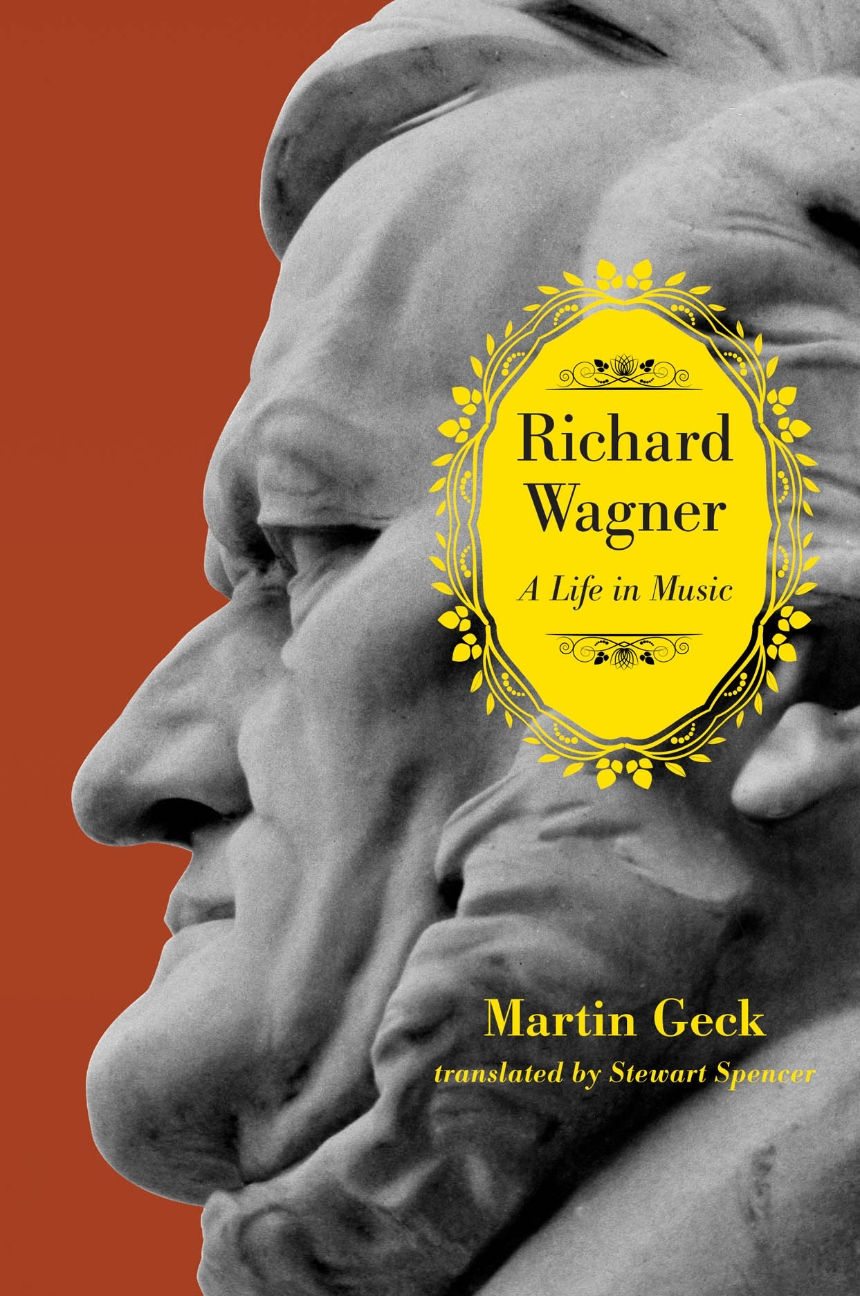Richard Wagner
A Life in Music
Best known for the challenging four-opera cycle The Ring of the Nibelung, Richard Wagner (1813–83) was a conductor, librettist, theater director, and essayist, in addition to being the composer of some of the most enduring operatic works in history, such as The Flying Dutchman, Tannhäuser, and Tristan and Isolde. Though his influence on the development of European music is indisputable, Wagner was also quite outspoken on the politics and culture of his time. His ideas traveled beyond musical circles into philosophy, literature, theater staging, and the visual arts. To befit such a dynamic figure, acclaimed biographer Martin Geck offers here a Wagner biography unlike any other, one that strikes a unique balance between the technical musical aspects of Wagner’s compositions and his overarching understanding of aesthetics.
Wagner has always inspired passionate admirers as well as numerous detractors, with the result that he has achieved a mythical stature nearly equal to that of the Valkyries and Viking heroes he popularized. There are few, if any, scholars today who know more about Wagner and his legacy than Geck, who builds upon his extensive research and considerable knowledge as one of the editors of the Complete Works to offer a distinctive appraisal of the composer and the operas. Using a wide range of sources, from contemporary scholars to the composer’s own words, Geck explores key ideas in Wagner’s life and works, while always keeping the music in the foreground. Geck discusses not only all the major operas, but also several unfinished operas and even the composer’s early attempts at quasi-Shakespearean drama.
Richard Wagner: A Life in Music is a landmark study of one of music’s most important figures, offering something new to opera enthusiasts, Wagnerians, and anti-Wagnerians alike.
464 pages | 43 halftones, 37 line drawings | 6 x 9 | © 2013
Music: General Music
Philosophy: Aesthetics
Reviews
Table of Contents
Introduction: Figuring Out Wagner?
Chapter 1 The Archetypal Theatrical Scene: From Leubald to Die Feen
A Word about Felix Mendelssohn
Chapter 2 The Blandishments of Grand Opera: Das Liebesverbot and Rienzi
A Word about Giacomo Meyerbeer
Chapter 3 “Deep shock” and “a violent change of direction”: Der fliegende Holländer
A Word about Heinrich Heine
Chapter 4 Rituals to Combat Fear and Loneliness: Tannhäuser und der Sängerkrieg auf Wartburg
A Word about Josef Rubinstein
Chapter 5 A Bedtime Story with Dire Consequences: Lohengrin
A Word about Arnold Schoenberg
Chapter 6 The Revolutionary Drafts: Achilles, Jesus of Nazareth, Siegfried’s Death, and Wieland the Smith
A Word about Paul Bekker
Chapter 7 “We have art so as not to be destroyed by the truth”: The Ring as a Nineteenth-Century Myth
A Word about Angelo Neumann
Chapter 8 “My music making is in fact magic making, for I just cannot produce music coolly and mechanically”: The Art of the Ring; Seen from the Beginning
A Word about George Steiner
Chapter 9 “He resembles us to a tee; he is the sum total of present-day intelligence”: The Art of the Ring; Wotan’s Music
A Word about Sergei Eisenstein
Chapter 10 “A mystical pit, giving pleasure to individuals”: Tristan und Isolde
A Word about Ernst Bloch
Chapter 11 “A magnificent, overcharged, heavy, late art”: Die Meistersinger von Nürnberg
A Word about Berthold Auerbach
Chapter 12 “They’re hurrying on toward their end, though they think they will last for ever”: The Art of the Ring; Seen from the End
A Word about Theodor W. Adorno
Chapter 13 “You will see—diminished sevenths were just not possible!”: Parsifal
A Word about Gustav Mahler
Chapter 14 Wagner as the Sleuth of Modernism
Notes
Bibliography
Index
